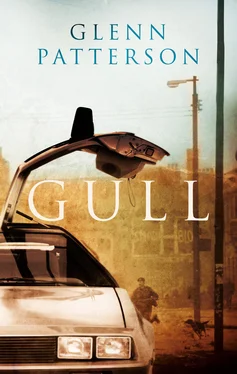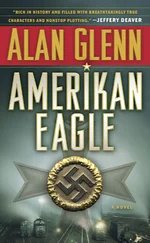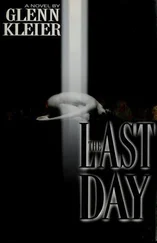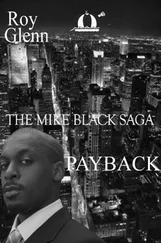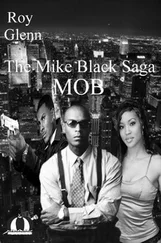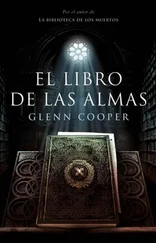Chumps.
She was turning from the cooker to the living room door when Robert opened it from the other side.
‘Do you know anything about this?’ he asked and pushed the door right back.
The boys were on their hands and knees on the floor, surrounded by cardboard and Styrofoam packaging, examining a twenty-four inch colour television as though trying to divine the magic of the Big Box of Moving Pictures. (It’s called electricity, boys. Try plugging the thing in.)
‘They told me they weren’t able to deliver it till Saturday,’ Liz said, though she had to work at the accompanying scowl. It was a beautiful set. Top of the range.
‘Here, look at this!’ One of the boys had unearthed a remote control and was holding it flat across both palms. His brother reached out a hand, withdrew it again without making contact.
He whistled through his teeth.
Robert sucked saliva through his. ‘Do you not think you should have talked to me first? What are the rental payments, a brand new set like that? You don’t even know yet if that place of yours is going to last.’
‘Look on the bright side, why don’t you? Anyway, there are no payments. I bought it’ — his brows knitted before she could get to the end of her sentence — ‘in the sale at Gilmore’s, half price. It was to be a surprise… Next week? Our anniversary?’
There was another whistle of wonderment from the explorers on the living room floor. ‘Ceefax as well… We’ll be able to check the football scores.’
Robert stared, trying, she would have sworn, to find something, anything, to be annoyed about. ‘I’m going to get washed,’ he said at last.
‘Can we put it on?’ the boys asked as one over their shoulders. They had clearly located the plug.
‘You can get into the kitchen and peel some more potatoes for me,’ said Liz, her eyes on the door Robert had walked out of. ‘Both of you.’
*
As Randall was leaving Warren House on the afternoon before the day appointed for the unveiling, the landscape gardeners were arriving. Two middle-aged men in tan bib overalls and — her hair hidden under a tweed newsboy cap — a very short young woman who, he quickly realised, was running the show. She directed the men to take two bay trees from the back of their flatbed truck and place them either side of the front door, then knelt herself before the first of the trees, a roll of red satin ribbon in one hand, a pair of scissors in the other, and before Randall’s car was even halfway down the drive had the first bow fashioned and attached.
He checked into the Conway again, into his old room. (He was touched that they had remembered.) The residents’ dining room was full of journalists ahead of tomorrow’s ceremony. The bar — all the bars — fuller still. Randall kept his head well down. Time enough for all that hoop-la in the morning. He went instead for a wander around the grounds after dinner, arriving eventually at the security barrier at the front gate. A guard stepped out of the hut. Tall, well built. Not one of the men he remembered. No more was the man who remained inside, turning the pages of a magazine. Even the uniform looked different.
‘New company has the contract now,’ the guard said in answer to his first question, and in answer to his unfinished second — ‘The guys who use to work here…?’ — ‘You’re asking the wrong person, mister. All’s I do is raise and lower the barrier and look in the car boots.’
Randall offered him a cigarette.
‘Don’t touch the things,’ he said and went back into the hut leaving Randall looking across the road at the cottages and their giant concrete offspring, gaudy with lights and TV screens.
*
The afternoon of that same day Liz and her workmates had had their final walk-through, starting up at the entrance to the assembly shop from the body-press shop. Bennington used to conduct the tours himself sometimes, before his sudden departure. Randall had filled in once, much to his obvious discomfort, and hers. She missed the name of the guy who was doing it today, but he was one of their own, stepping up, acting up, half taking the pee out of it, half hiding behind the Americans’ manner of speaking.
‘Right, let’s see who has been paying attention on our little excursions,’ he began. ‘The cranes bring the bodies through here to the assembly shop…’ He pointed to a man in the front row. ‘How many square feet?’
‘Me? Um…’
‘Too slow: two hundred and seventy-two, six and a quarter acres. So, bodies come in, are lowered on to the trim line here, trim being the polite word for the viscera, the guts, all those wires that give civilians the heebie-jeebies when they look behind the dashboard… Pardon me, the dash .’ He — they — had reached the far end of it as he talked and now wheeled right, round the corner of the parts’ shelves that flanked the trim line. ‘Round here is the…’ He pointed at the same man again.
‘The, ah, chassis line.’
‘More like it: the chassis line. The end of the chassis line to be exact, where the chassis, all nicely “dressed”, is placed on one of these…’
‘Tellus carriers,’ the man said without waiting to be asked.
‘Now you’re just showing off… and is carried to where the trimmed body waits to be — ahem — mated with it.’
Cue the sniggers. The guide raised his voice above them. ‘I cannot promise you that heavenly choirs will sing, but I can promise that if that body and that chassis do not meet at the time prescribed all hell will break loose. Am I right or am I right?’
‘You’re right!’ the group chorused.
‘Good. The chassis and the body, now forever joined, are guided by the miracle of computers on the most important part of their journey. He had stopped next to a double-decker rack of stainless steel panels, or skins. ‘The doors get all the press, but you know and I know the stainless steel skins are what make the DMC-12 the DMC-12. Guaranteed rust-proof for…?’ He cupped his hand behind his right ear.
‘Twenty-five years!’ came the cry. They were starting to enjoy themselves.
Your man nodded, satisfied. ‘One quarter of a century. So, skins there, then doors here, then all that remains is the seats and the wheels…’
‘Here, less of the “all that remains”,’ shouted Anto, a little to Liz’s left.
The guide acknowledged the justice of his complaint with a raised hand and a bowed head. ‘Correction, after that there follows the vitally important task of fitting the seats and wheels, then the car is placed on the rolling road, its brakes tested, its headlights aligned, and off on out the doors it goes — to what is no concern of yours. In fact, from the moment you walk through that factory gate in the morning, whichever gate it is you walk through, you don’t have to worry about anything…’
The chorus now became a sing-song. This was an old favourite: ‘No green, no white, no orange, no red, no white, no blue. We are the independent state of DeLorean, our wages are DeLorean wages, our conditions are DeLorean conditions.’
The guide held up a finger, straight as a baton. ‘As long as you keep getting fibreglass bodies in one end of this building and DeLorean motor cars out the other.’
They applauded, him for his performance, themselves for their contribution and for what they were about to do together.
‘OK,’ he said — he was Jimmy Cagney now, all twitching lip and jittery hands — ‘tomorrow we make cars.’
Randall left the Conway a couple of minutes short of half past six. The scaffolders were already onsite when he reached the factory, laying out the metal poles for the temporary bleachers — grandstand as they preferred here, if a structure with a mere twenty-four seats could be thought of as grand (as opposed to some of the people who would sit in it). Before it was quite eight o’clock half a dozen outside-broadcast units — ranging in size from VW van through three-axle fixed-body truck to giant semi-trailer — were parked in the loading bay at the side of the assembly shop, thick black cables running from them into a generator provided gratis along with the constant supply of tea and coffee and triangles of toast brought from the canteen by Peggy, who once upon a time had stuffed cuddly toys in the pram factory.
Читать дальше
